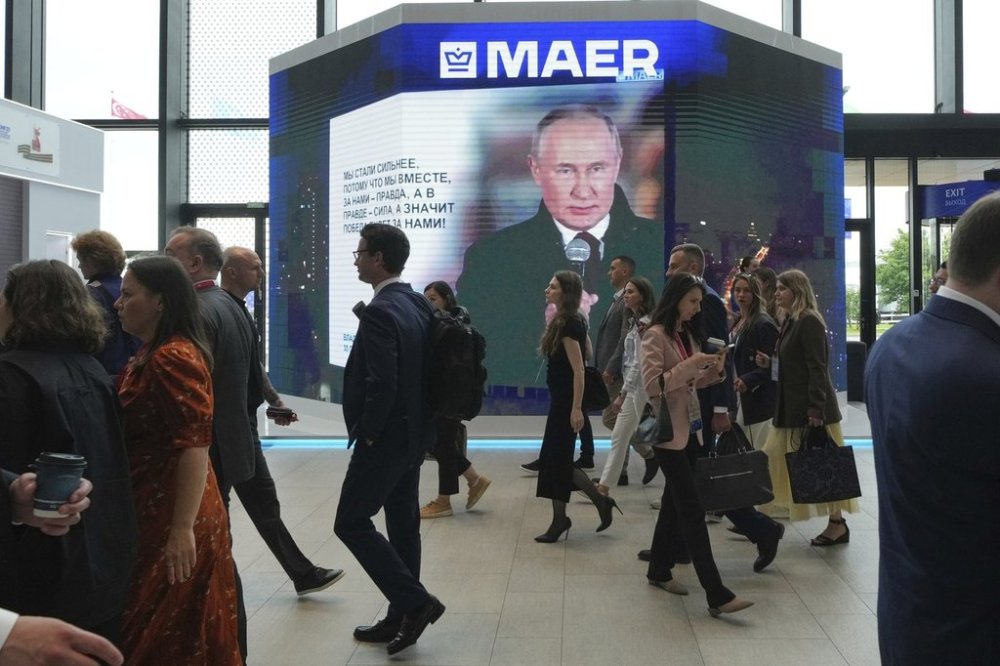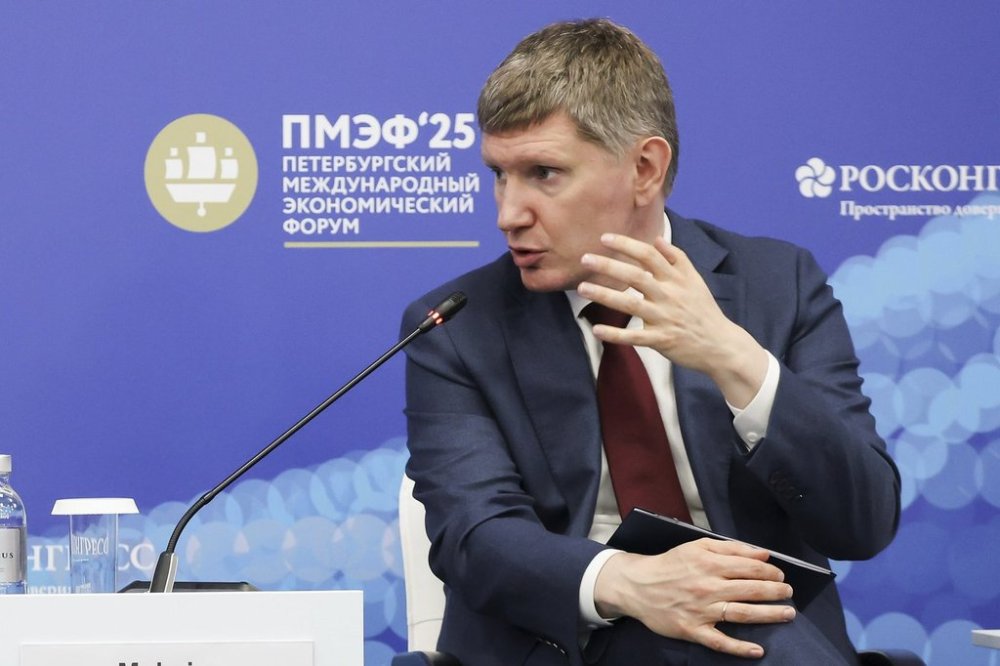Russia’s economy minister says the country is on ‘the brink of recession’
Advertisement
Read this article for free:
or
Already have an account? Log in here »
To continue reading, please subscribe:
Monthly Digital Subscription
$0 for the first 4 weeks*
- Enjoy unlimited reading on winnipegfreepress.com
- Read the E-Edition, our digital replica newspaper
- Access News Break, our award-winning app
- Play interactive puzzles
*No charge for 4 weeks then price increases to the regular rate of $19.00 plus GST every four weeks. Offer available to new and qualified returning subscribers only. Cancel any time.
Monthly Digital Subscription
$4.75/week*
- Enjoy unlimited reading on winnipegfreepress.com
- Read the E-Edition, our digital replica newspaper
- Access News Break, our award-winning app
- Play interactive puzzles
*Billed as $19 plus GST every four weeks. Cancel any time.
To continue reading, please subscribe:
Add Free Press access to your Brandon Sun subscription for only an additional
$1 for the first 4 weeks*
*Your next subscription payment will increase by $1.00 and you will be charged $16.99 plus GST for four weeks. After four weeks, your payment will increase to $23.99 plus GST every four weeks.
Read unlimited articles for free today:
or
Already have an account? Log in here »
ST. PETERSBURG, Russia (AP) — Russia’s economy is “on the brink of going into a recession,” the country’s economy minister said Thursday, according to Russian media reports.
Economy Minister Maxim Reshetnikov delivered the warning at the St. Petersburg International Economic Forum, the annual event in Russia’s second largest city designed to highlight the country’s economic prowess and court foreign investors.
Russian business news outlet RBC quoted the official as saying “the numbers indicate cooling, but all our numbers are (like) a rearview mirror. Judging by the way businesses currently feel and the indicators, we are already, it seems to me, on the brink of going into a recession.”

The economy, hit with a slew of sanctions after the Kremlin sent troops into Ukraine in February 2022, has so far outperformed predictions. High defense spending has propelled growth and kept unemployment low despite fueling inflation. At the same time, wages have gone up to keep pace with inflation, leaving many workers better off.
Large recruiting bonuses for military enlistees and death benefits for those killed in Ukraine also have put more income into the country’s poorer regions. But over the long term, inflation and a lack of foreign investments remain threats to the economy, leaving a question mark over how long the militarized economy can keep going.
Economists have warned of mounting pressure on the economy and the likelihood it would stagnate due to lack of investment in sectors other than the military.
Speaking at a forum session, Reshetnikov said Russia was “on the brink,” and whether the country would slide into a recession or not depends on the government’s actions.
“Going forward, it all depends on our decisions,” Reshetnikov said, according to RBC.
RBC reported Russia’s Finance Minister Anton Siluanov and Central Bank Gov. Elvira Nabiullina gave more optimistic assessments.

Siluanov spoke about the economy “cooling” but noted that after any cooling “the summer always comes,” RBC reported.
Nabiullina said Russia’s economy was merely “coming out of overheating,” according to RBC.

